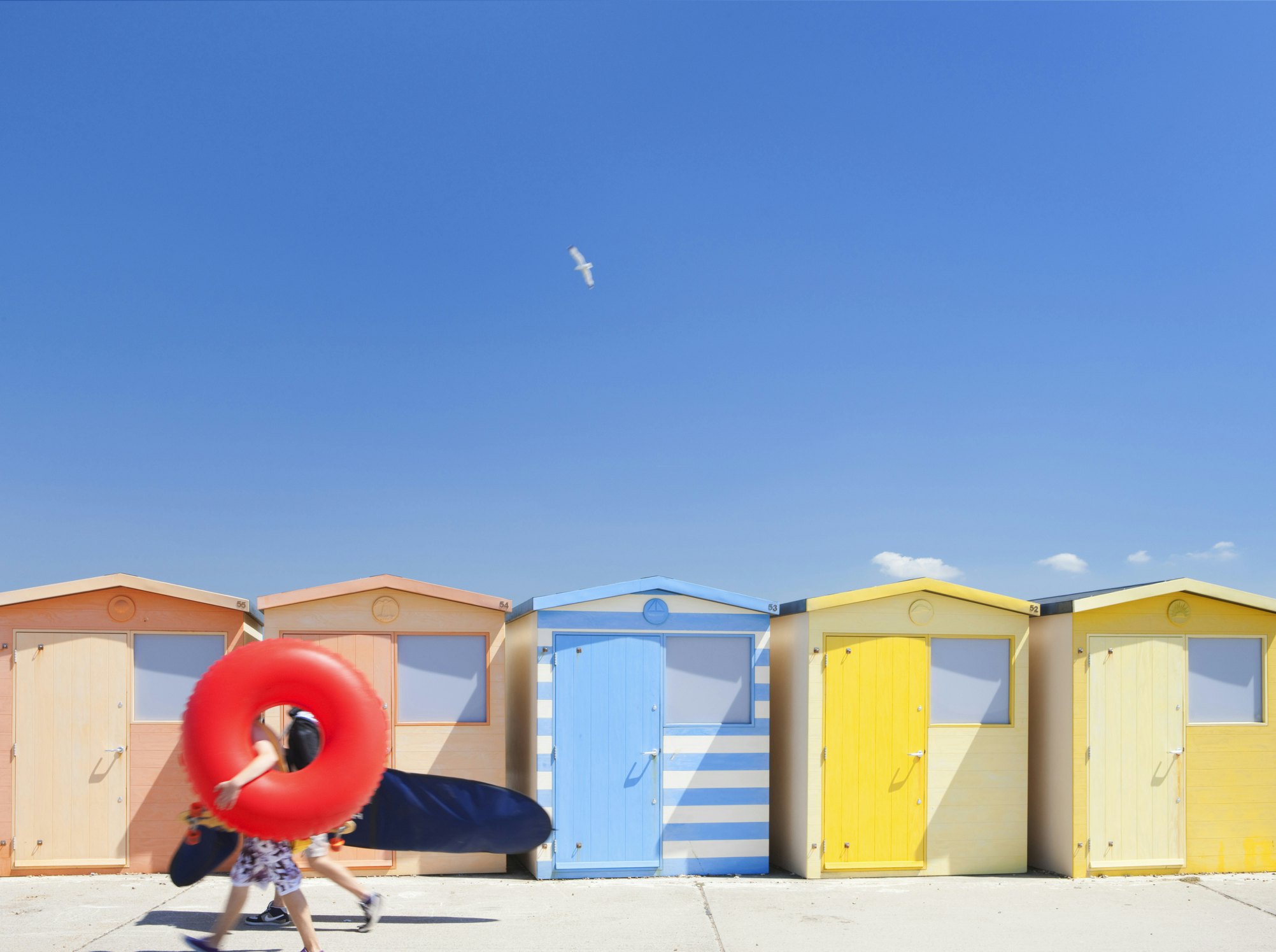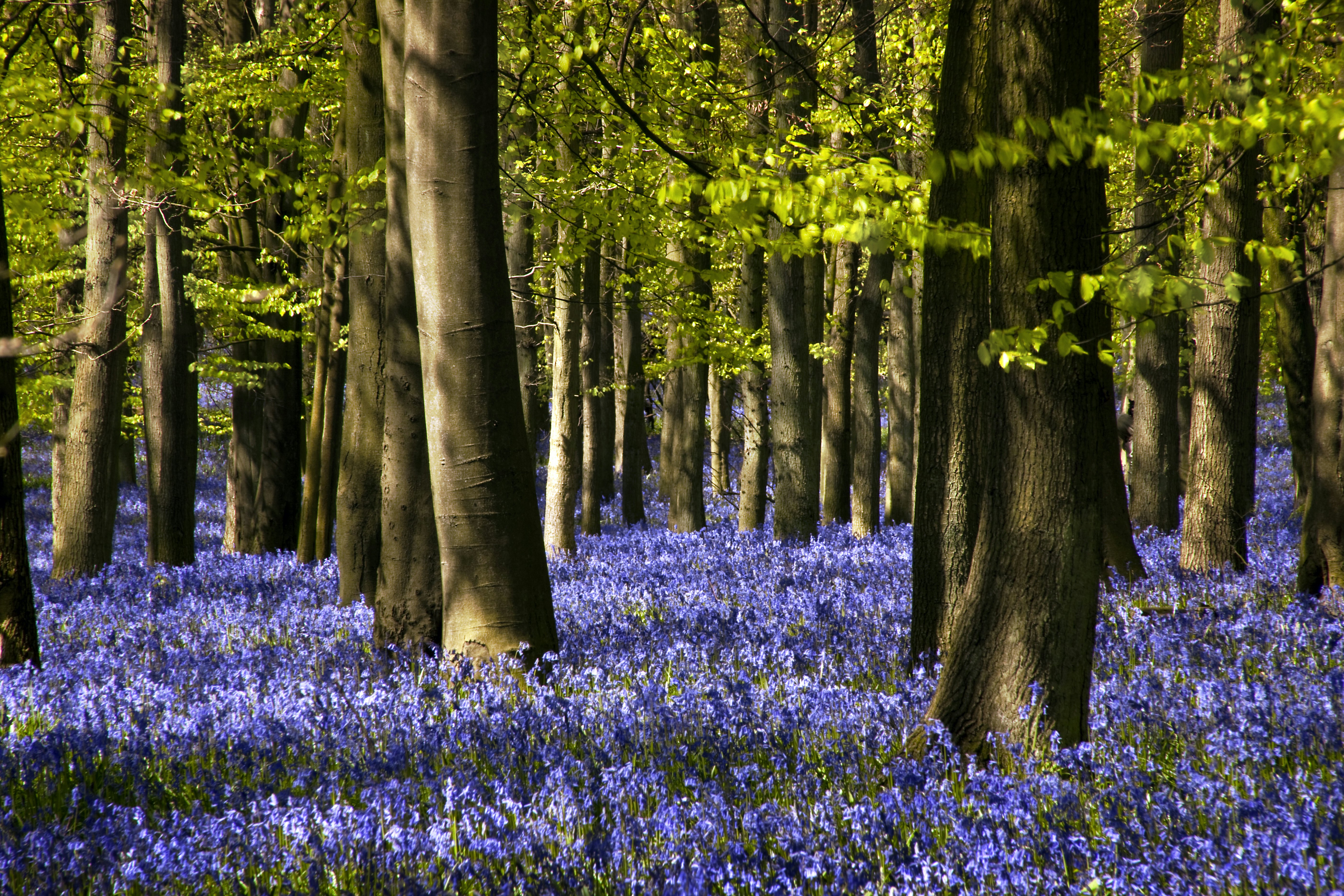

Get to know England through the year with this month-by-month guide to what's happening © SolStock / Getty Images
England might be small, but it packs a lot into its pint-sized shores.
Whether you're climbing the Lake District's uplifting fells or wandering along Dover's fabled White Cliffs, England delivers a bucolic feast for the senses. But the weather is never far from the conversation in England. The elements here are notoriously subject to change from hour to hour, though that rarely stops the people of this gregarious nation from getting out and having fun.
Here's a month-by-month breakdown of what's going on, from festivals and events to the all-important weather, to help you pick the best time for your visit.

June to August is the best time for good weather and festivals, but it's busy
The weather in England is at its best from June to August, with plenty of sunny days. The school holiday period starts late July, and many UK families make the most of the break from school to travel with their kids, so prices for accommodations are high, particularly in August. Parking can be tricky, especially in national parks, at beaches and seaside areas such as Cornwall and Devon, and popular cities such as Oxford, Bath and York. Public transportation in London can be sweltering on a hot day. This is festival season too, and there are some huge outdoor events across the country.
Explore the great outdoors in the spring and autumn months
There are fewer crowds in spring (March to May) and autumn (September to November), and the weather is often mild, making this a great time for hikes and cycle rides in national parks. Expect sun mixed with sudden rain showers from March to May, and some balmy autumn days from September to October. Seasonal sights start to open up in spring.
December to February is cold and the best time for indoor activities
It's normal for the weather to be wet and cold through the low season. It can be snowy too, especially up north, where the weather can affect transport schedules. Opening hours are often reduced from October to Easter, with some places shut for the entire winter, but major sights (especially in London) remain open all year. Make the best of the season at Christmas markets and inside cozy pubs with roaring fires.
Enjoy budget-friendly city breaks in January
After the frenetic festivities of Christmas and New Year’s Eve, the chilly first few weeks of the year can feel a bit of an anticlimax, but there are still events taking place. January is a good time of year to take advantage of cheap city breaks and low hotel prices.
Key events: London New Year’s Day Parade, Chinese New Year (can fall in February).
February sees the return of the Six Nations
The countryside can be glorious under snow and sunshine, but it's more likely to be gray and gloomy. The Six Nations rugby tournament brings colorful flags and a jovial atmosphere to pubs across the country.
Key events: Jorvik Viking Festival (York), Six Nations Rugby Championship, Dark Skies Festival.

England begins to bloom in March
Spring starts to show itself in March, with daffodils, bluebells, crocuses and primroses brightening up the month. Many hotels and inns offer special weekend rates to tempt people out from under their duvets.
Key event: University Boat Race (London).
April brings iconic events and warmer weather
The weather is looking up, with warmer and drier days bringing out the spring blossom on the trees. Sights and attractions that are closed for the low season open up around the middle of the month and major events such as the Grand National horse races take place.
Key events: Grand National (Aintree), London Marathon.
Beer gardens begin to fill up in May
With sunny spring days, the calendar starts to fill up with events. Two public holidays (the first and last Mondays of May) bring heavy road traffic, and pub beer gardens get very busy.
Key events: Bath Festival, Stratford Literary Festival, FA Cup Final, Brighton Festival, Chelsea Flower Show (London), Glyndebourne (May to August, East Sussex), Keswick Mountain Festival.

England goes music-mad in June
Headlined by the legendary flag-waving Glastonbury, June sees the music-festival season kick off properly, and some big sporting events fill out the calendar.
Key events: Derby Week (Epsom Downs), Isle of Wight Festival, Trooping the Colour (London), Royal Ascot, Glastonbury, Pride Month.
July brings festivals up and down the country
This is it: summer is in full swing, with weekly festivals and county shows. Schools break up at the end of the month, so there’s a holiday tingle in the air, dulled only by busy Friday-evening roads as people head out of town for weekends away.
Key events: Wimbledon Lawn Tennis Championships, London Pride, Latitude Festival (Suffolk), Wireless (London), Womad (Wiltshire), Truck Festival (Oxfordshire), Camp Bestival (Dorset), Cowes Week regatta (runs into August).
August is for exploring the coast (and more festivals)
Schools and colleges are closed, parliament is in recess, the sun is shining and England is in a holiday mood, with many families heading for the coast. It's the start of the football (soccer) season, with packed stadiums through till May.
Key events: Notting Hill Carnival (London), Reading and Leeds Festivals, Manchester Pride, Camp Bestival (Shropshire).

Enjoy the last days of summer in September
The first week of September feels more like August, but then schools open up again and motorway traffic returns to normal. The daylight hours start to get noticeably shorter, but it's still possible to find decent weather and even some warm days.
Key events: Great North Run (Newcastle), Last Night of the Proms (London), Heritage Open Days.
Make the most of England’s fall colors in October
Leaves turn golden-brown, the weather begins to get colder, and days get shorter. Take advantage of cheaper hotel rates and enjoy the regal autumnal colors of the great outdoors.
Key events: Falmouth Oyster Festival, Cheltenham Literature Festival, Whitby Goth Weekend, Halloween.
Ease the November chill at Bonfire Night
The weather’s often cold and damp in November – suitably somber for Remembrance Day (November 11) – while Guy Fawkes Night sparks up fun and fireworks in memory of a failed attempt to blow up parliament in 1605.
Key events: Guy Fawkes Night (Bonfire Night), Remembrance Day.
December brings bright lights and Christmas festivities
Schools break up around mid-December, and many towns and cities hold Christmas markets, ideal places to browse for Christmas presents with a mulled wine in hand. New Year’s Eve is the year’s biggest party, particularly in London and other large cities.
Key events: Christmas markets, New Year celebrations.














